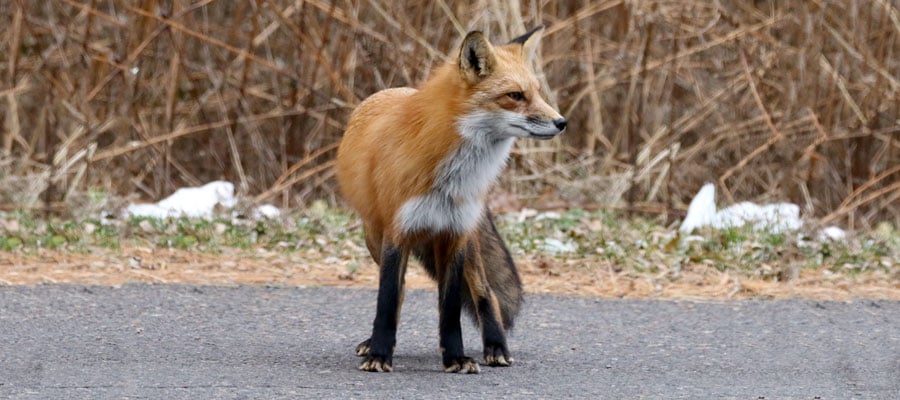It’s estimated that the current population of the Treasure Valley is almost 710,000, which is a 65% increase from what our population was 2000. And when that explosive growth comes shopping centers, business complexes, and neighborhood development in areas which we used to consider remote.
As our ever-expanding population and development continue, the local wildlife is having to adapt. They either move farther out, or stay and take advantage of the bounties around, such as trash cans, bird feeders, and unfortunately, small pets.
What is lurking in the back yards? Plenty. Let’s look at some of the more common wildlife that we see around.
RACCOONS
This masked bandit isn’t a huge problem here in the valley, but they are around. In addition to rabies, raccoons can carry two other diseases that are hazardous to pets and people: roundworm and leptospirosis and from time to time, they can carry canine distemper. Raccoons will attack domestic animals, especially if they feel cornered and in danger. It’s best to keep you pet away from raccoons, no matter what size.
COYOTE
Coyote usually hunt small mammals such as mice, vole, or rabbits, but small dogs and cats may be considered prey due to their size. Larger dogs may be viewed as potential competitors since coyotes are territorial. Besides the risk of rabies, this canine cousin can also carry distemper, hepatitis, parvovirus, mange, ticks, fleas, and worms.
FOX
Foxes are a skittish bunch and are good at keeping themselves hidden, but make no doubt about it, they are roaming around Boise, Meridian and beyond. They are most likely to be active during the early morning hours and hunt small animals like rodents, rabbits, and birds. Smaller pets can also look appetizing to a fox.
SKUNKS
Skunks are no strangers to our area. Although they are generally nothing more than a nuisance, a rabid skunk may attack. Skunks are more active during the dark, so it’s a good idea to check your yard before letting your dog out to do his business. Fortunately, unless you walk your dog at night, you probably will not confront one. Your main concern is to protect your pet from being sprayed. Nobody wants to deal with that situation.
Tips on how to keep wildlife out of your yard
- Always walk your puppy on a leash. Don't let him sniff excrement or dead animals. Set up a fenced-in area that is wildlife proof.
- Do not leave pet food outside that might entice wildlife to venture towards your house.
- Don't feed the wildlife. You don't want them thinking your home is the local fast food hang out.
- Place your garbage cans inside the garage. Raccoons are notorious for opening garbage lids and having a feast, possibly leaving infected garbage remnants around for curious pets.
- Be diligent about following up on your pet's vaccine schedule.
We all know the infamous Ben Franklin quote “An ounce of prevention is worth a pound of cure”, and it’s true here too. Taking a few quick precautions can help prevent your pet from getting in a fight or getting infected. If you need your pet’s vaccinations updated, don’t hesitate in making an appointment today.
